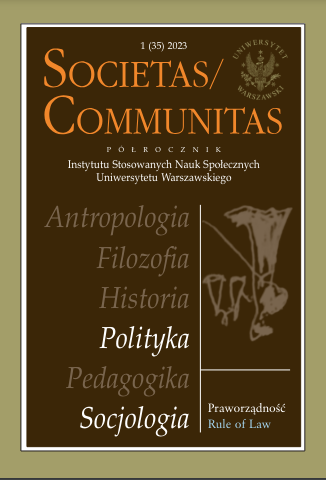Judicial Dialogues and the Judiciary in Spain: Tempest in a Teapot?
Judicial Dialogues and the Judiciary in Spain: Tempest in a Teapot?
Author(s): Joxerramon BengoetxeaSubject(s): Constitutional Law, Analytic Philosophy, Philosophy of Law, Sociology of Law
Published by: Instytut Stosowanych Nauk Społecznych Uniwersytetu Warszawskiego
Keywords: judicial dialogues; Third Power; judiciary;
Summary/Abstract: Judicial dialogues and the Third Power, the judiciary, are analysed here from a combined standpoint of analytical philosophy and institutional and sociological theory of law. Judicial dialogues are taking place in the European multilevel legal system, and gaining momentum in the Spanish context, regardless of our appraisal and our conceptual strategies to redefine them extensively or restrictively. The manoeuvres to appoint sympathetic judges to key institutions like the General Council for the Judiciary or the Constitutional Court are giving rise to heated debates that reach beyond Spanish politics and concern Europe. Compared to the crisis of the judiciary and the challenges to the separation of powers and judicial independence in Eastern European countries, this could seem like a tempest in a teapot, or as the Spanish saying goes a storm in a glass of water. However, the Spanish crisis is impacting the quality of procedural justice and the rule of law. We therefore need to identify the different uses of the expression judicial dialogues and the impact these dialogues have on judicial independence. From the perspective of the general principles of the judicial function and the independence of the judiciary, judicial dialogues are more than communicational devices for contrasting views and interpretations of the law; they can be abused strategically and provoke tensions between jurisdictions.
Journal: Societas/Communitas
- Issue Year: 2023
- Issue No: 35 (1)
- Page Range: 127-154
- Page Count: 28
- Language: English

